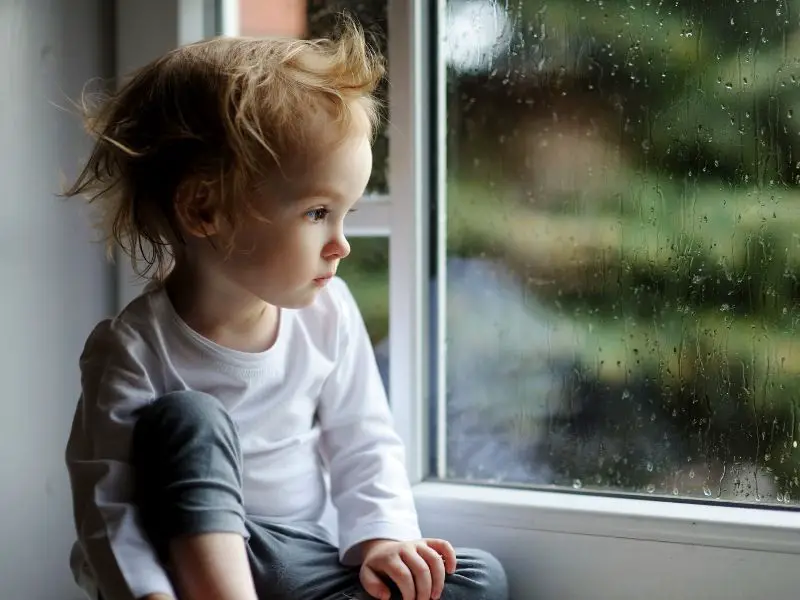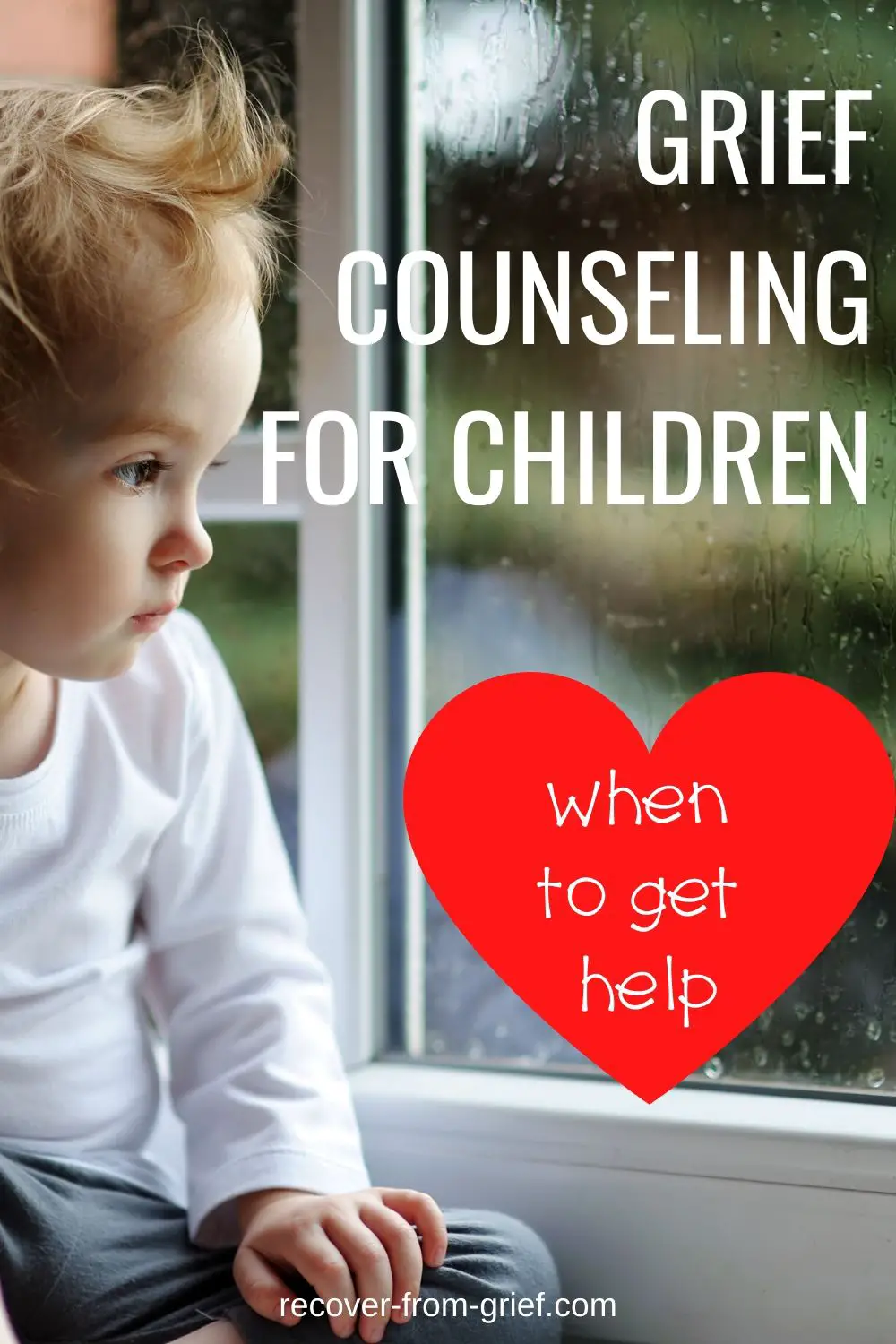Grief counseling for children…

Gosh, there you are, all balled-up with your own grief. Yet, in the back of your mind, you know that you need to look out for the kids as well. They may be clingy, or have nightmares, or be acting out horribly in school. Common sense tells you that some misbehavior and regression to infantile behavior would be normal, given the emotional turmoil in your household.
So how do you know when things have gotten serious, and you might need the expertise of a professional to help guide your kids through their own bereavement?
We may be able to help. First, let’s look at normal grieving symptoms in children.
Normal Symptoms of Grief in Children
These should be temporary and gradually improve:
- Regression to bedwetting, thumbsucking
- Numbness or “shock”
- Whining, crying or clinging to you
- Reduced ability to concentrate
- Major changes in eating and/or sleeping patterns
- Roller coaster ride of emotions: highs and lows
- Hyperactivity and “acting out”, temper tantrums or aggression
- Poor school grades, bad behavior in class.
Warning Signs
These are some warning signs that may indicate a need for professional counseling for your child:
- Chronic health problems related to the stress
- Behavioral problems at home or in school that do not gradually improve
- Suicidal intention or fantasies, other than fleeting thoughts
- Withdrawal, lack of interest in formerly enjoyed activities that doesn’t improve
- Bad dreams that don’t gradually decrease in frequency or intensity
Grief Counseling For Children – How to Get Help
Start with your child’s school. Make an appointment, then go in person and talk to his or her guidance counselor. Let them know what has happened, and your concerns about your child’s behavior and needs. Inquire whether the county school board provides psychological services (most do, free of charge).
No luck at school? Then have a talk with your child’s primary care physician. He knows your child and would best be able to recommend an appropriate child psychologist to help unravel your child’s problems.
You can also call your nearest hospice, cancer center, or funeral home to inquire if they know of someone in your town experienced in grief counseling for children.
If your insurance doesn’t cover psychotherapy, and you can’t afford it, most counties fund a mental health center that provides counseling on a sliding-fee scale, based on your income. Look in the yellow pages under “Mental Health”.
Attend the counseling sessions with your child. The counselor may want to talk to him or her alone at times, but you want your kid to know that no matter how sad you are about the tragedy, you still love and care about him.
It is most important that a child not feel forgotten and fear that he has to fight his demons all alone. Be there for him.
Grief And Children – Resources for Bereaved Kids
Local Support Groups For Grieving Children
- RAINBOWS – (847) 952-1770 – Local peer support groups for grieving children and their families. Groups are led by trained adults. Online newsletter and referrals. “Guiding kids through life’s storms”.
- DOUGY CENTERS – toll-free 866-775-5683 – Peer support groups for grieving children, at local child grief centers, or with trained providers. For children and adults wanting to help a grieving child. The website has an extensive list of books about children and grieving.
Books About Grief and Children
For All Ages
- Tear Soup by Pat Schweibert is one of the best and most popular grief resources we know of. It looks and reads like a fairy tale or child’s fable, but it is actually most informative about grief for adults as well as children. A must-read.
- Sad Isn’t Bad: A Good-Grief Guidebook for Kids Dealing with Loss by Michaelene Mundy is loaded with positive, life-affirming advice for coping with loss as a child. This guide tells children what they need to know after a loss: that the world is still safe, life is good. and hurting hearts do mend. Written by a school counselor, this book helps comfort children facing the worst and hardest kind of reality.
For Ages 4-8
- The Fall of Freddie the Leaf by Leo Buscaglia. A sensitive story about death and dying, this book remains a classic. As Freddie experiences the changing seasons along with his companion leaves, he learns that death is a part of life. May help young children understand death and to talk about it.
- Angel Catcher for Kids by Amy Eldon offers a healthy way for a child to cope with the painful and often confusing process of grieving. Designed to help a child overcome the loss of a loved one, this journal also invites the child to record precious memories of the special person who has died. Angel Catcher for Kids will help a child to catch and hold-an angel.
- Daddy’s Promise is especially helpful for children who have lost a parent. This book addresses many of the emotions a child may experience: guilt, anger, sadness, and fear. A hopeful and constructive book that should help open dialogue with the child.
- Everett Anderson’s Goodbye by Lucille Clifton. A beautifully illustrated Reading Rainbow selection. A simple, poetic telling of Everett Anderson’s feelings as he copes with his father’s death.
For Ages 6-11
- Dusty Was My Friend: Coming to Terms With Loss by Andrea F. Clardy. Eight-year-old Benjamin remembers his friend Dusty, who was killed in a car accident and tries to understand his own feelings about losing a friend in this way.
For Ages 9-12
- Don’t Despair on Thursdays! The Children’s Grief Management Book by Adolph Moser. From The Emotional Impact Series, a highly praised handbook for children dealing with a grievous loss.
Grief counseling for children is important. Don’t wait until it’s too late. If you think that a comfort item or special gift might be helpful to a grieving child, click on the link above to explore our hand-picked selection of sympathy gifts for kids.

